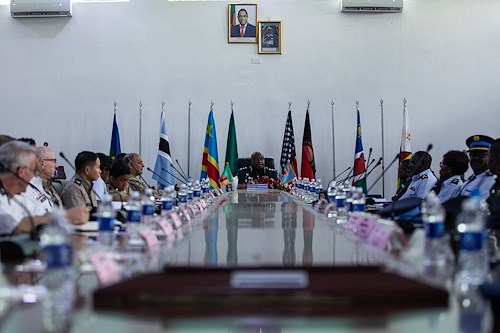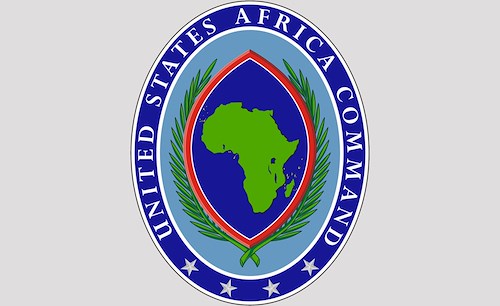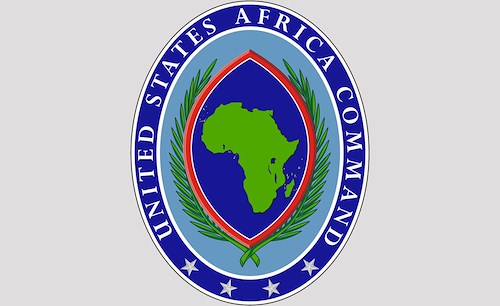As it nears the end of a successful campaign in Libya and deliberately accomplishes shared goals in Afghanistan, NATO faces several difficult challenges, Defense Secretary Leon E. Panetta said in Brussels, Belgium, October 5, 2011.
The secretary addressed a gathering hosted by the Carnegie Europe Center, part of the Carnegie Endowment for International Peace.
"The international security environment is complex, and it's rapidly changing. Our nations are grappling with significant budget challenges, putting new pressure on defense spending that has already been in decline here on this continent," Panetta said.
"But that cannot be an excuse for walking away from our national security responsibilities," he added. "This fiscal environment means that the United States and all nations in NATO must depend on their fellow members even more to share the burden of protecting common interests."
To do so, he said, requires a strong alliance whose members must address growing gaps in military capabilities despite fiscal austerity.
Panetta noted that former Defense Secretary Robert M. Gates used his last policy address here to deliver a strong message to Europe about the need to boost its commitment to defense and to more equitably share the security burden with the United States. NATO Secretary General Anders Fogh Rasmussen, he added, has warned that Europe risks becoming weak and divided if it does not invest in its own security.
"We do not have to choose between fiscal security and national security," Panetta said. "But achieving that goal will test the very future of leadership throughout NATO."
President Barack Obama has called NATO the most successful alliance in human history, Panetta said. "We depend on it every day to provide capacity that we cannot find anyplace else," he added.
Operation Unified Protector, now winding down in Libya, is the latest example of NATO's importance, the secretary said. Because of the quick action of 28 nations, he told the audience, the alliance has given that nation "a real chance at a better and more prosperous future free from the tyranny of the Gadhafi regime."
The mission had greater leadership from Europe and achieved more burden-sharing between the United States and Europe than in the past, Panetta said. "After the United States employed its unique assets in the first week of the conflict to destroy key regime military targets and air defense capabilities," he added, "Europeans took on the brunt of operations."
France and the United Kingdom engaged on a large scale, flying one-third of the overall sorties and attacking 40 percent of the targets, and they exercised leadership roles politically and diplomatically, Panetta said. Canada was a substantial contributor, he noted, Italy contributed to the air-ground mission and Denmark, Norway and Belgium together destroyed as many targets as France. Romania and Bulgaria deployed ships as part of the Libyan arms embargo, the secretary added.
"This was truly a collective action," Panetta said, "not only among NATO allies, but with non-NATO partners like Qatar, the [United Arab Emirates] and Sweden."
The operation demonstrated the alliance's effective integrated command structure and the contributors' ability to work effectively and communicate with each other quickly in a complex mission, he said.
"NATO is very simply the only alliance that is capable of executing this kind of responsibility," Panetta said.
The largest effort and a focus of NATO talks among the alliance's defense ministers here this week is the war in Afghanistan, the secretary added, where non-NATO allies and partners contribute close to 40,000 troops to the mission.
As the United States begins drawing down its forces there, the secretary said, "[we] will make sure that ... we do not deprive our NATO partners of the critical enablers and support their troops depend on."
The alliance must continue "to send a strong signal to the people of Afghanistan and the Taliban that we are committed to the long-term security of their country," Panetta added.
But NATO successes also illustrate growing gaps in alliance capabilities, he said.
In Libya, the secretary said, NATO had significant shortages of well-trained targeting specialists, supplies and munitions, aerial refueling tankers, and intelligence, surveillance and reconnaissance platforms such as Global Hawk and Predator drones. Without such capabilities, provided by the United States, said he added, "the Libya operation would not have gotten off the ground or been sustained."
In Afghanistan, Marine Corps Gen. John R. Allen, commander of the International Security Assistance Force, still lacks trainers and continues to seek contributions to trust funds established to sustain the Afghan national security forces. As in Libya, Panetta said, the shortage of ISR capabilities and enablers, especially airlift, has plagued the mission since the beginning.
"These capability gaps are being exposed at precisely the time when every defense minister in NATO, including myself, is dealing with great fiscal challenges at home," the secretary added. "There are legitimate questions about whether, if present trends continue, NATO will again be able to sustain the kind of operations we have seen in
Libya and Afghanistan without the United States taking on even more of a burden."
The Defense Department already is required to reduce spending by $450 billion over the next 10 years, and that total could jump to $1 trillion if Congress fails to address larger deficit issues this year, he said.
"Recognizing the financial and political realities we face, ... we need at a minimum to coordinate additional cuts, avoid surprises and ensure that our limited resources are being put into the most efficient and effective defense programs," Panetta said.
Going forward, he added, NATO must fundamentally review how the alliance organizes itself to fight, identify and protect the core alliance military capabilities it needs to meet the next decade's challenges.
Before May's NATO summit in Chicago, Panetta said, the alliance should look for innovative ways to enhance partnerships with countries outside NATO that are exceptionally capable militarily and those that strive to be more capable.
"We live in a world of growing danger and growing uncertainty where we face threats from violent extremism, from nuclear proliferation, from rising powers and from cyber attack," the secretary said. "We cannot predict where the next crisis will occur, but we know we are stronger when we confront these threats together."
In confronting the budget challenges he faces at home, Panetta said, he will make the tough decisions needed to avoid hollowing out the U.S. military. NATO, he added, must send a strong signal of its determination not to hollow out the alliance, but to keep it strong and vital.
"It has been a tough decade of war, but our alliance has emerged stronger," the secretary said. "Just as we met the challenges of the Cold War and 9/11,"I am confident we can confront the challenges that await us in the next decade."




